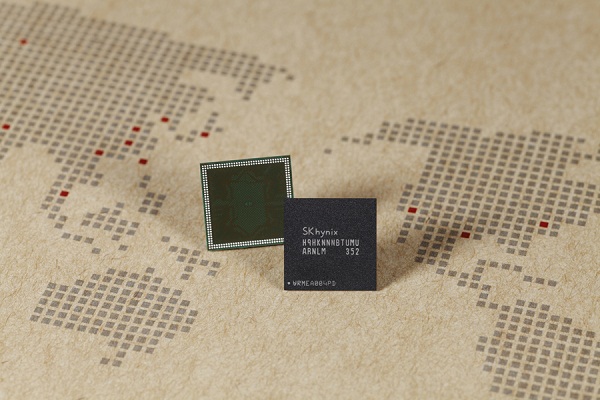Intel's new Haswell-E & X99 CPU/Chipset combo, due in 3Q14, will bring full DDR4 support to the enthusiast-class desktop market; it is anticipated that HW-E will be the first consumer-available platform supporting DDR4. With nearly all computing technology, it is common to see new innovations deployed to enterprise markets first -- this is for a few reasons: High quantity orders from enterprise (server) markets will rapidly drive-down the cost of the new technology (in this case, DDR4); enterprise groups will perform intense quality assurance testing of the new tech; and server engineers often work closely with device engineers throughout the development process, supplying feedback and validation support during dev.
Knowing that DDR4 looms around the corner for a late 2014 / early 2015 availability, it's not surprising to hear from memory die suppliers as they compete for use in manufactured memory modules. As many of you know, companies like
Samsung and SK Hynix are the two largest memory suppliers in the world, fabricating both NAND Flash and RAM silicon chips. Both companies announced the development of 8Gb (that's a lower-case 'b,' so 1GB) LPDDR4 memory chips - or low-power DDR4 memory modules, which can be installed in quad-die configurations. A quad-die package of 8Gb modules would yield a 4GB total RAM capacity -- a healthy start for a new RAM technology.
The "LP" prefix of both companies' new DDR4 supply is indicative of use in mobile technology and unique low-power applications (though primarily phones and tablets). Both Samsung and SK Hynix are using 20-30nm fab process (a specific number was not provided) and are operating at nearly twice the speed of existing low-power DDR3 RAM (3200Mbps, or 400MB/s).
Both chips operate at 1.1V, against the LPDDR3 1.2V standard. SK Hynix stated:
"The new interface LPDDR4 is expected to be loaded onto flagship mobile devices at the end of 2014 and is anticipated to be commercialized regularly from 2015. Plus, it is expected to be the main product in the industry from 2016."
SK Hynix and Samsung have effectively announced directly-competing products with matching specifications, and both companies are already working with vendors on supply orders.
For the interested, the recent spike in RAM prices is due to a fire in an SK Hynix factory, which destroyed a significant portion of the available supply (and fabrication equipment).
- Steve "Lelldorianx" Burke.
